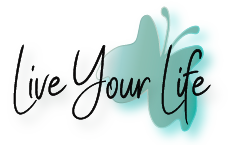SELF-ABANDONING
In a narcissistic relationship, we unconsciously self-abandon. At the beginning of the relationship, we spend all of our energy on the new person in our life. His wishes and needs become a priority. As a codependent taking care of others is how we feel worthy and important. It lights us up to solve problems that are not ours to solve.
I spend most of my life being disconnected from my mind and body. I was an expert at ignoring my gut instincts. I was a true people pleaser even as a child. I didn’t trust I knew the answers I needed to live a fulfilled life. During my recovery from narcissistic abuse, I discovered a somatic healing tool called EFT, “emotional freedom technique.” EFT is scientifically proven to rewire the brain and release anxiety while regulating the nervous system, lowering our stress hormones, so we no longer living in fright and freeze mode. Only then are we able to gain clarity of what we are experiencing? I was finally able to release what was no longer serving me, and I came to understand how I had abandoned myself and tolerated toxic behavior by dissociating.
I live a very different life today. I have discovered what my boundaries are and I don’t avoid feeling my hard feelings. I’m ok with not getting everything right. I embrace my triggers and become curious about what they are trying to teach me. I put myself first, which took a while, but today I feel proud of the role model I am as a mother by showing my child there are multiple layers to feelings and thoughts.

After a ton of research, this is what I have come to understand about self-abandoning: Self-abandoning is a self-destructive pattern that can contribute to anxiety, depression, low self-esteem, not knowing your boundaries, and attracting unhealthy relationships.
Self-abandonment is a learned behavior from childhood. It is likely our parents or caregiver didn’t meet our emotional and physical needs while growing up. They might have been neglectful and not present, (consciously or unconsciously) – causing us to feel unworthy and unlovable. The good news is that it is more than possible to stop self-abandoning! The first step is becoming aware of what our conditioned mind is repeatedly telling us.
. A thought becomes a part of a belief we have about our self. A thought is something we say over and over to our self. A thought becomes a part of a belief we have about our self. A thought is something we say over and over to our self. -abandonment is a learned behavior from childhood. It’s likely that your parents or caregiver didn’t meet your emotional and physical needs while growing up. They might have been neglectful and not present, (consciously or unconsciously) – causing you to feel unworthy and unlovable. . A thought becomes a part of a belief we have about our self. A thought is something we say over and over to our self.
A thought becomes a belief we have about ourselves. A thought is something we repeat over and over.
I went on this quest to explore when and why I was self-abandoning. I created the following questions which helped me gain so much clarity.
If you want to give it a go, grab your journal or a piece of paper.
Complete the following sentences, by writing down the first true word that comes to mind:

• As a child my needs were……..
– Growing up I felt……by my parents or caregiver.
– When I did something I was proud of my parents would…
• During my childhood when I expressed anger or sad feelings my parents would…
– In my childhood home I had to become………..
– My house was always………
– Growing up making my own decisions was……
• I don’t trust my instincts because…
• If I make a “wrong” decision I worry that…..
• I ask others what I should do because I believe….
• I often say yes to things when I really want to say no because….
• I seek validation from others because…
– Being liked by others means I am…..
• When I tell people how I truly feel they usually…
– No matter what I accomplish it never feels good enough because…
-I can never become……because…..
-My idea of self-care is….
-On a scale from 1-to 10 taking care of my own wants and needs..….
• I am not honest about how I truly feel on the inside because….
• I have a strong need to use…drink… spend money on…. to numb myself from feeling…..
• I’m so ashamed because…..
• I can’t forgive myself for….
-In my relationship, I find it very important to focus on my partner’s needs because…
-I’m worried my partner will……
-When I express my feelings, needs, and wants in my relationship the reaction is…..
-I need my partner to be happy in order for me to be happy because….
Did your answers surprise you?
Let’s explore how we can rewire our thought patterns to change our core beliefs. Our memories and perceptions are seen through the eyes of a younger version of us. A lot of our work is when we learn to transition from a child’s mind to an adult’s. It might seem unnatural and challenging at first but give it a try! It takes practice!
As you write down the first thing that comes to mind, think about how you would answer if your current beliefs were no longer holding you back.
-As the adult that I am what would I say to the little girl in me?….
-How would I respond to my best friend if she was using negative language about herself?….
-What do I need to fill me up?…..
-What makes me happy?…..
-What do I want to do that I’m not doing?….
-What belief about honoring myself is holding me back?…
-What belief would serve me better?’
-If I felt worthy and good enough what would my life be like?…
-What is holding me back from experiencing the joy I deserve?…
– If I let my friends and family solve their own problems it would…
- -What is one decision I can make right now without asking anyone?
- What is the worst thing that can happen if it turns out it wasn’t the “best” decision?…
- -What would happen if I can get quiet enough, and trust my gut always knows what I should do?…
- How would my life change if I truly believe I don’t need external validation?….
What could happen if I told one person I trust how I truly feel?…
-What if my story could help someone else realize….
-Knowing what I know now I can forgive myself for…….
-What am I capable of if I believe I’m…
-If I start saying NO when I mean NO I would feel….
What are my own boundaries in my relationships?
(ex: How do I want to be treated, talked to, heard, and seen?)
-What do I value in an intimate relationship?
(ex: feeling safe, communication, respect, love, consistency, honesty)….
-In my current relationship I feel…..
-I deserve and want a relationship that makes me feel……..
-I deserve and want to live a life that is……
What is 1 small thing I can change right now to take a small step closer to the life I want to live?…
I hope you found this exercise helpful and discovered how you self-abandon. When we know better we do better.
Til next week.
Yours in healing,
Ina


